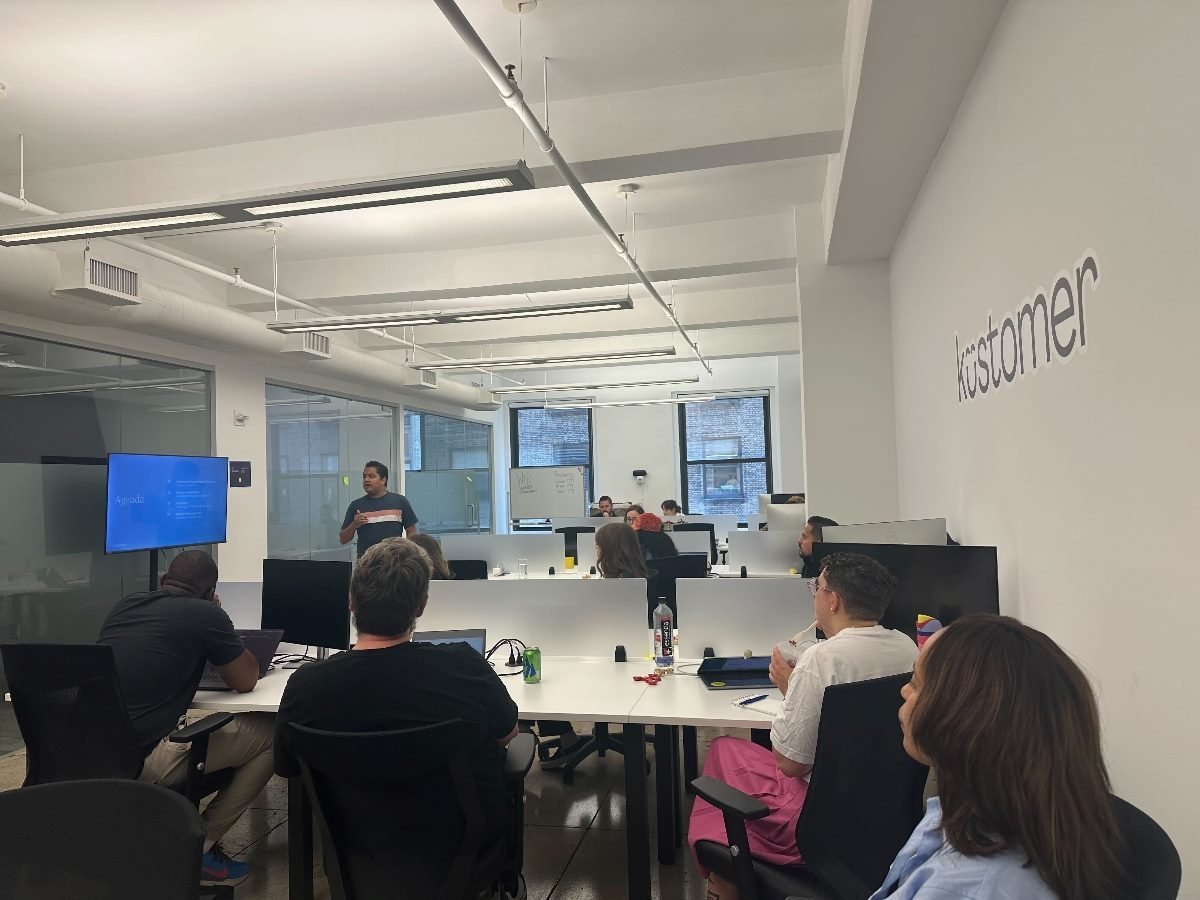Few stories capture the entrepreneurial spirit quite like Kustomer’s journey from a billion-dollar buyout to an independent comeback. The New York-based AI-powered customer service platform has secured $30 million in Series B funding, led by Norwest Venture Partners, marking a dramatic new chapter for a company that experienced both the euphoria of a major acquisition and the reality of corporate restructuring.
The Acquisition That Wasn’t
When Meta (then Facebook) acquired Kustomer for approximately $1 billion in 2020, it seemed like a perfect strategic fit. The social media giant was expanding its business tools ecosystem, and Kustomer’s innovative customer service platform promised to enhance Facebook’s suite of business solutions. Co-founded by CEO Brad Birnbaum and Jeremy Suriel, both Salesforce alumni, Kustomer had already established itself as a disruptor in the customer relationship management space.
However, Meta’s strategic priorities shifted dramatically. As the company pivoted toward the metaverse and subsequently embraced AI as its primary focus, enterprise tools like Kustomer became peripheral to core objectives. The 2023 “year of efficiency” that saw Meta slash costs and streamline operations ultimately led to Kustomer’s spinoff, valued at $250 million – a staggering 75% markdown from its acquisition price just three years prior.
The Independent Renaissance
Rather than viewing the spinoff as a setback, Birnbaum and his team seized it as an opportunity to chart their own course. The company’s recent $30 million Series B, announced in August 2025, represents what Birnbaum calls “a new Series A for the post-spinoff Kustomer 2.0, or K2.” This fresh capital injection, supported by continued backing from Battery Ventures, Redpoint Ventures, and Boldstart Ventures, positions the company to accelerate its AI-native vision for customer experience.
The funding comes at a critical juncture for the customer service industry. As businesses increasingly seek to balance automation with human touch, Kustomer’s platform offers a compelling proposition: AI agents that work seamlessly alongside human representatives, powered by the company’s proprietary KIQ technology built on the latest large language models.
AI-Native Architecture Advantage
What distinguishes Kustomer in an increasingly crowded customer service landscape is its fundamental architecture. Rather than retrofitting AI capabilities onto existing systems, the company built its platform as AI-native from the ground up. This approach enables several key advantages:
Unified Data Platform: Kustomer combines real-time customer data, contextual understanding, and decision-ready infrastructure in a single view. This eliminates the fragmented experience that plagues many traditional customer service systems, where agents must toggle between multiple applications to understand customer history and context.
Omnichannel Integration: The platform seamlessly integrates customer conversations across multiple channels – email, chat, social media, phone – into one unified timeline. This comprehensive view enables more personalized and efficient service delivery.
Intelligent Automation: Advanced automations handle routine tasks while AI agents manage complex queries autonomously. The system includes sophisticated features like customer “snoozing” and “wake-up” capabilities for proactive engagement, along with sentiment analysis and suggested actions for human agents.
No-Code Configuration: Business users can configure and customize the platform without technical expertise, reducing implementation time and ongoing maintenance costs.
Market Positioning and Competitive Landscape
The customer service software market has become increasingly competitive, with established players like Salesforce Service Cloud, Zendesk, and newer AI-focused entrants vying for market share. Kustomer’s positioning as an AI-native platform provides differentiation, but the company faces the challenge of competing against well-funded incumbents with extensive customer bases.
The recent funding will be crucial for scaling operations and meeting what the company describes as “growing global enterprise demand.” Birnbaum’s vision extends beyond traditional seat-based pricing models to conversation-based pricing, reflecting the shift toward outcome-driven software economics. This pricing innovation could provide a competitive advantage, particularly for businesses with fluctuating customer service volumes.
Leadership and Vision
Brad Birnbaum’s leadership has been instrumental in navigating Kustomer’s complex journey. With over 20 years of C-level executive experience and a background in disruptive enterprise technologies, he has demonstrated resilience in steering the company through acquisition, spinoff, and now independent growth. His vision for “re-humanizing customer service” through intelligent automation resonates with businesses seeking to improve customer experience while managing operational costs.
The company’s ability to attract continued investment from sophisticated venture capital firms signals confidence in both the leadership team and market opportunity. Norwest’s lead investment, in particular, reflects belief in Kustomer’s AI-native approach and growth potential.
Challenges and Opportunities
Despite positive momentum, Kustomer faces several challenges as an independent entity. The company must prove it can achieve sustainable growth without the resources and market reach of a parent company like Meta. Customer acquisition costs in the enterprise software space continue to rise, and the sales cycles for large enterprise deals remain lengthy and complex.
However, the opportunities are equally compelling. The global customer service software market continues to expand, driven by digital transformation initiatives and increasing customer expectations. Businesses are actively seeking solutions that can deliver personalized experiences at scale while controlling operational costs.
The rise of generative AI has created new possibilities for customer service automation, but also raised the bar for platform capabilities. Kustomer’s early investment in AI-native architecture positions it well to capitalize on this trend, particularly as businesses move beyond simple chatbots toward more sophisticated AI agents capable of complex problem resolution.
Financial Implications
The $30 million Series B provides Kustomer with runway to execute its growth strategy, but the funding amount suggests the company is still in scaling mode rather than preparing for public markets. The capital will likely be deployed across product development, sales and marketing, and geographic expansion.
The company’s journey from a $1 billion valuation to a $250 million spinoff and now fresh funding illustrates the volatility of startup valuations and the importance of strategic fit. For Kustomer, independence may ultimately prove more valuable than the security of corporate ownership, assuming the company can execute on its growth plans.
Looking Forward
As Kustomer charts its independent course, several factors will determine its success. The company must continue innovating in AI capabilities while maintaining the reliability and scalability that enterprise customers demand. Building a sustainable competitive moat in an increasingly crowded market will require continuous product differentiation and strong customer relationships.
The broader trend toward AI-powered customer service shows no signs of slowing, and Kustomer’s positioning as an AI-native platform provides a foundation for growth. However, execution will be critical as the company competes for enterprise customers against well-funded competitors.
Birnbaum’s team has demonstrated remarkable resilience in navigating corporate acquisition and spinoff. Now, with fresh capital and renewed independence, Kustomer has the opportunity to prove that sometimes the best path forward is the one you chart yourself.
The $30 million funding round represents more than just capital – it’s a vote of confidence in the vision that customer service can be both highly automated and deeply human. For Southern businesses evaluating customer service platforms, Kustomer’s story offers lessons in resilience, strategic pivoting, and the potential for AI to transform traditional business operations.
As the company moves forward as an independent entity, its success will serve as a case study for other startups navigating the complex relationship between innovation, corporate ownership, and entrepreneurial independence. In an era where AI is reshaping every industry, Kustomer’s journey from acquisition to independence may well define the future of enterprise software evolution.






